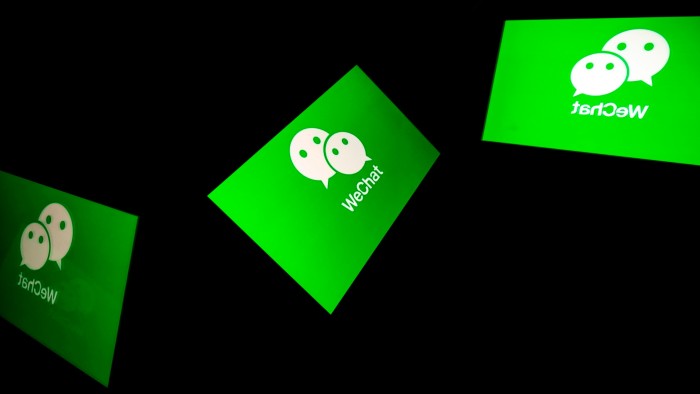Unlock the Editor’s Digest for free
Roula Khalaf, Editor of the FT, selects her favourite stories in this weekly newsletter.
Despite recent volatility in Tesla’s share price, investor confidence in Elon Musk’s broader ambitions remains surprisingly resilient. Tesla continues to trade at valuation multiples not only well above legacy carmakers but also most of its tech peers.
This enduring premium reflects a broader belief in Musk’s ability to deliver transformative innovation across emerging industries, including robotics, driving software and, increasingly, artificial intelligence. That same optimism now extends to his latest venture: XAI Holdings, the combination of X, formerly Twitter, and his xAI company.
At first glance, the vision appears revolutionary. Musk wants X to become “the everything app,” a platform that seamlessly blends social media, AI and payments. His AI venture, xAI, is meant to embed AI directly into the user experience. Musk is reportedly seeking $20bn in new funding for this effort, which would value the company at over $120bn — an ambitious target that leans heavily on the same investor faith that sustains Tesla’s extraordinary multiples.
Yet in China, a more sobering reality is taking shape, one that could force a fundamental rethink of Musk’s model and the broader assumptions underlying today’s AI valuations.
In recent months, Chinese tech giant Tencent has been quietly rewriting the playbook for AI in apps. Without splashy funding rounds or marketing, Tencent integrated DeepSeek — China’s answer to ChatGPT — directly into WeChat, its flagship super app with more than 1.3bn monthly active users. Long before AI entered the picture, WeChat already had unified messaging, payments, healthcare, transport, shopping and business services into a single seamless platform. With a few incremental updates, AI was folded directly into that experience, becoming part of the infrastructure and a natural extension of the services users already relied on.
For years, dominance in AI was thought to require vertical integration: controlling everything from foundational models to consumer facing platforms. That logic mirrored Musk’s success in electric vehicles, where end-to-end control over design, manufacturing and distribution brought clear advantages. But that dynamic is now rapidly unravelling, led by China’s tech giants. In a fast-commoditising sector like AI, cost efficiency and integration speed are becoming the main drivers of profit margins and competitiveness. Partnerships can deliver as much value as ownership. Companies that continue to invest in scaling vertically integrated AI empires are likely to find their returns increasingly under pressure.
This shift comes at an unfortunate time for Musk. X remains burdened by steep annual interest expenses, while advertising revenue has fallen since Musk’s acquisition of Twitter in late 2022. Meanwhile, xAI’s Grok models are still catching up to the enterprise-scale adoption that OpenAI’s GPT-4 and Anthropic’s models have already secured through corporate partnerships. In theory, fresh funding could help close some of that gap. In practice, however, the nature of competitive advantage in AI has already moved beyond Musk’s vertically integrated model.
That strategic mismatch will make it harder to achieve the high valuations that AI companies have grown accustomed to. Before Musk’s takeover, Twitter generated around $5bn in annual revenue, with ads accounting for nearly 90 per cent. This year, X’s global ad sales are expected to reach around $2.26bn, according to research firm Emarketer. Based on sector multiples, X’s standalone valuation would likely sit closer to $15bn.
As for xAI, which hopes to compete with OpenAI and Anthropic, its financial profile is still emerging. It told investors last year that it was on track to surpass $100mn in annual revenue. At that scale, even generous benchmarks suggest a valuation just over $2bn, particularly given its lack of proven enterprise traction. Taken together, a valuation closer to $20bn would seem more realistic, far below the $113bn Musk assigned to xAI and X during their recent merger.
Meanwhile, in China, valuation multiples are even lower. Beyond Musk, Tencent’s AI strategy signals a fundamental repricing event for the entire AI sector. That era of steep premiums for technological novelty is ending. Musk’s super app dream now faces a world where AI is abundant and cheap. In the next phase of AI, the true measure of success will not be how much capital a company can raise. It will be how little it needs to win.
Read the full article here




